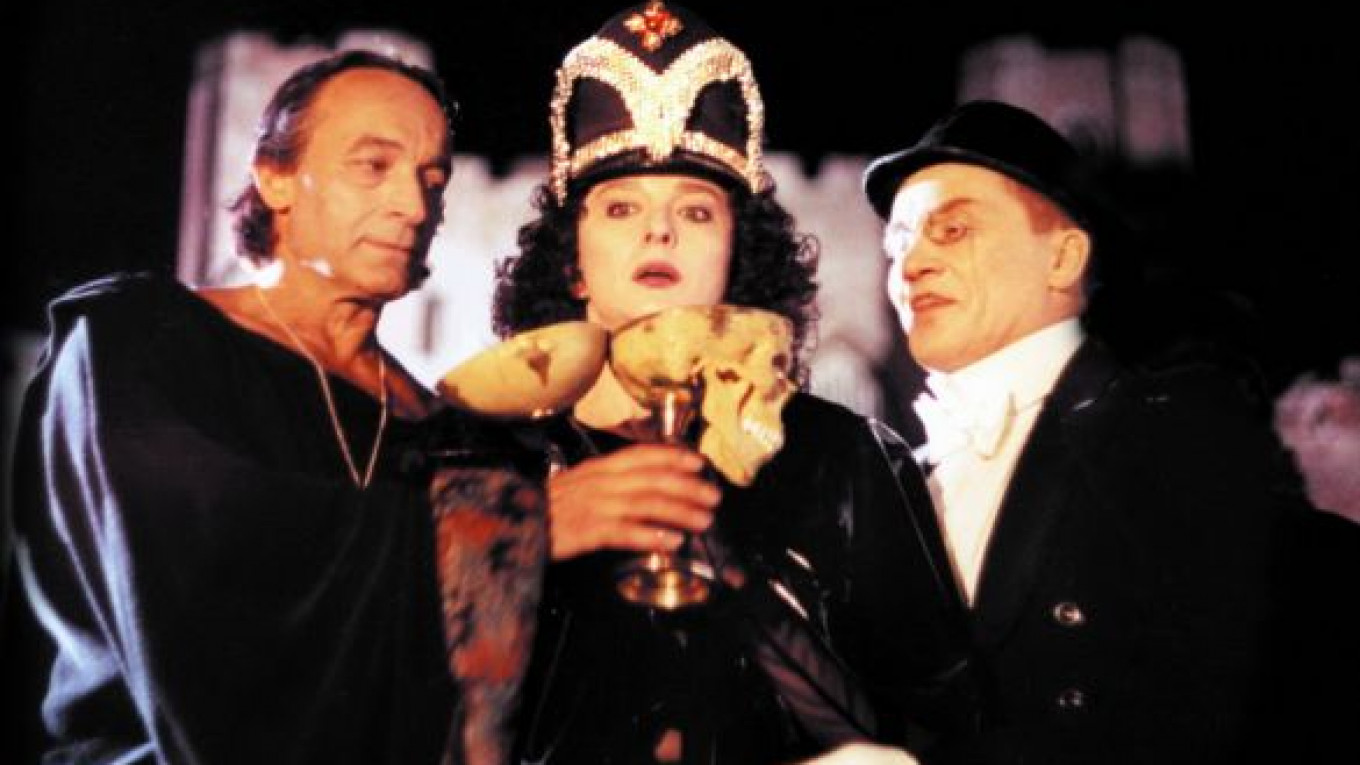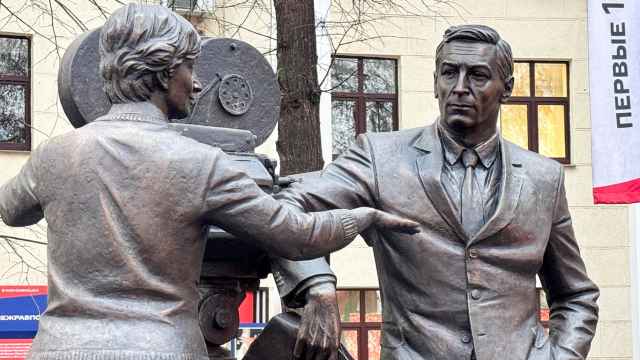Before the premiere of “Master and Margarita,” the actors who starred in the first big screen version of the once-banned Mikhail Bulgakov novel observed a moment of silence.
They were paying respect to a number of their fellow artists, such as Soviet great Mikhail Ulyanov who played Pontius Pilate in the film, who had died in the 17 years between its filming in 1994 and its release earlier this month.
Those 17 years in hiding have given the film an air of mystery — even if the reason for the long delay was, banally, director Yury Kara’s conflict with the producers — and its release was much awaited by critics and the actors themselves.
“I got used to the fact that this film would never appear on the screen, and you can’t return the past,” said Igor Vernik, who played the Judas figure. “There’s something unbelievable in what has happened. Something that disappeared, like water into sand, has returned.”
“It’s like the famous saying in the novel that ‘manuscripts don’t burn,’” said Vernik, who was 28 when he started making the film.
Bulgakov’s novel, a satire that tells of the devil’s visit to atheistic 1930s Moscow, interspersed with the tale of Pontius Pilate and Christ, circulated in samizdat in Soviet times, and could never have been filmed.
Kara’s was the first attempt, and the long delay in its release has had local newspapers speculating about a curse connected to the film.
Critics have not been kind to Kara’s film, saying it is kitschy with unconvincing special effects and often crude scenes. The nudity had one critic comparing Kara to Italian erotic film director Tinto Brass.
“In the beginning of his career, Kara was a very strong director who was able to make decent Soviet films. But things he does now are just below the understanding of a human being,” said Kommersant film critic Mikhail Trofimenkov.
Kara made his reputation with “There Was a War Tomorrow,” about schoolgirls finding out about Stalinist repressions on the eve of World War II, which came out in 1987. His trashy gangster saga “Thieves-in-Law,” added to his fame even if it was called “kitsch” by critics.
A 2005 television version of “Master and Margarita” by Vladimir Bortko, who made the successful version of Bulgakov’s “Heart of a Dog” is the only other Russian attempt to film the book. It was also panned by critics.
Kara’s film has, however, been praised for gathering together a crew of stars. Margarita is played by Anastasia Vertinskaya, daughter of the famous singer Alexander Vertinsky and former wife of Nikita Mikhalkov. Composer Alfred Schnittke wrote the soundtrack, his last one before he died in 1998.
And many have seen it as a view into the Russian 1990s. A Vedomosti critic wrote that if there were a time when the book could have been filmed then that was the time.
Actors who took part in the film said it had an influence on them even if it only came out in the next century.
Nikolai Burlyayev, who plays Yeshua in the film, is now a noted supporter of the Russian Orthodox Church.
“This role was like a gift of life for me,” Burlyayev told Komsomolskaya Pravda before the premiere.
Burlyayev did note that he wouldn’t let his kids see the film, and critics have picked out the infamous Voland’s Ball, where Hitler and Stalin look-alikes appear with lots of nudes, as particularly kitsch.
One scene, however, that did get approval at the premiere was when one of the main characters, Ivan Bezdomny, played by the now famous actor Sergei Garmash, is trying to get into the Kremlin, screaming, “The beasts are living here!”
A Message from The Moscow Times:
Dear readers,
We are facing unprecedented challenges. Russia's Prosecutor General's Office has designated The Moscow Times as an "undesirable" organization, criminalizing our work and putting our staff at risk of prosecution. This follows our earlier unjust labeling as a "foreign agent."
These actions are direct attempts to silence independent journalism in Russia. The authorities claim our work "discredits the decisions of the Russian leadership." We see things differently: we strive to provide accurate, unbiased reporting on Russia.
We, the journalists of The Moscow Times, refuse to be silenced. But to continue our work, we need your help.
Your support, no matter how small, makes a world of difference. If you can, please support us monthly starting from just $2. It's quick to set up, and every contribution makes a significant impact.
By supporting The Moscow Times, you're defending open, independent journalism in the face of repression. Thank you for standing with us.
Remind me later.






